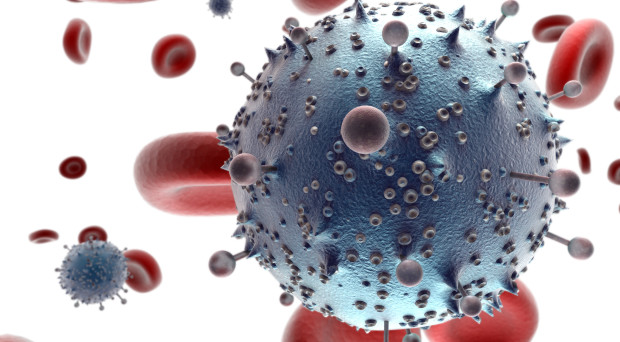
A quarter of a century ago, Asia and the Pacific, home to almost half the population of the planet, were at great risk of a generalized HIV epidemic starting among people who inject drugs.
Just imagine what the health, social and economic costs of that would have been! Thailand had already become the first developing country in the world to experience a generalized HIV epidemic.
This had started among people who inject drugs and then spread to commercial sex workers, their sex partners and then the sex partners of their sex partners. The HIV epidemic in Thailand first started among prisoners who injected drugs but remained undetected while the problem was still only in jails.
Many prisoners were released as part of a Royal amnesty to celebrate the King’s 60th birthday, inadvertently releasing a large number of people recently infected with HIV and at a highly infectious stage.
A sudden increase in the prevalence of HIV
The prevalence of HIV among people who inject drugs increased in the community from 1% to 40% in just ten months. Only a few years later, one in six male military recruits and one in eight pregnant women in the north west of the country had HIV infection.
HIV does not respect national borders so this epidemic then soon spread rapidly in neighboring countries among and from people who were injecting drugs.
HIV control in Asia
In the early 1990s, I participated in a World Health Organisation meeting in Kuala Lumpur, Malaysia on the subject of HIV control among people who inject drugs in Asia. Every country in the region was represented.
It was the first ever official meeting to be held on this subject in Asia, many countries in the region were still ruled by communist governments. One delegate after another got up to read carefully and word-for-word their prepared and approved speech.
It was clear that the national representatives had been ordered to only read their officially approved speech and make no other comments. The meeting ran way behind time. Whether communist or capitalist, Hindu, Buddhist, Muslim or officially atheist, the representative of every country argued that HIV would never be a problem in their country and even if it did become a problem, their country would never accept ‘harm reduction’. I was so depressed by this meeting that I briefly retreated to my room.
Supporting harm reduction
A quarter of a century later, every major country in Asia has now accepted harm reduction and implemented and expanded needle syringe programs and community and/or prison opioid substitution programs.
But a quarter of a century later, every major country in Asia has now accepted harm reduction and implemented and expanded needle syringe programs and community and/or prison opioid substitution programs (with methadone and/or buprenorphine).
Coverage is still woeful but improves a little every year. What hasn’t changed is the relentless opposition of ASEAN (Association of Southeast Asian Nations) to harm reduction. ASEAN still aims to make all member states drug free by the end of 2015.
This target has recently been pushed back to 2020. One by one, the UN bodies involved in drug policy changed from being hostile to harm reduction to supporters of harm reduction. Now they are all supportive of harm reduction though to varying degrees.
A relatively small group of people and a few organizations achieved this change. About 25 Asian people and a similar group of people from outside the region worked very closely and very hard to achieve this change. These fifty or so people included doctors, clinicians, researchers, drug users, activists and national and international civil servants. The battle is not by any means over yet.
After the struggle to reduce the harm from drugs in Asia came the struggle to reduce the harm from drug policy.
After the struggle to reduce the harm from drugs in Asia came the struggle to reduce the harm from drug policy. There is now a growing recognition that drug prohibition has failed comprehensively and has resulted in severe unintended negative effects.
While drug prohibition has been vigorously implemented, drug markets have got steadily larger and more dangerous. Deaths, disease, crime, corruption and violence have continued to soar.
In April 2016 at the United Nations in New York, a United Nations General Assembly Special Session (UNGASS) on drugs will consider what to do about the fractured international consensus on drug policy.
More needs to be done
Despite the great advances of harm reduction in Asia in recent decades, there is much more to be done. Power is never given up easily, especially if livelihoods are also involved.
Despite the great advances of harm reduction in Asia in recent decades, there is much more to be done. Power is never given up easily, especially if livelihoods are also involved. The fight to protect public health transformed into a battle to also protect human rights.
It is no accident that HIV threatened most men who have sex with men, people who sell sex and people who inject drugs. These behaviors had been defined as criminal acts and consequently severely punished.
It is now clear that not only were these laws ineffective in achieving their objectives and at great cost, but that these laws were also unfair and unjust. We are now seeing the slow unraveling of global drug prohibition, especially in the Americas. It is only a matter of time before drug law reform will also start in Asia.
So a battle that began with efforts to stop HIV spreading among and from people who inject drugs in Asia has slowly morphed into many other battles with some major gains along the way. Each minor victory showed how much further there was to go.
I cannot end this story of a remarkable journey without thanking and paying tribute to many wonderful friends and colleagues in many countries, and recalling that some of these extraordinary people have not lived to see this partial victory.
Comments